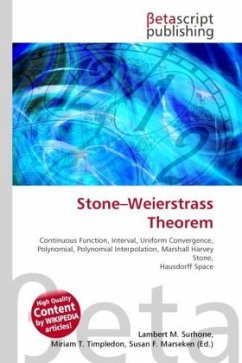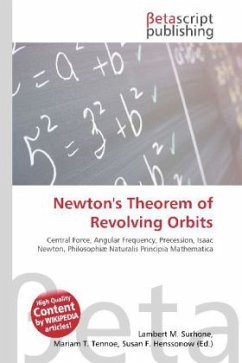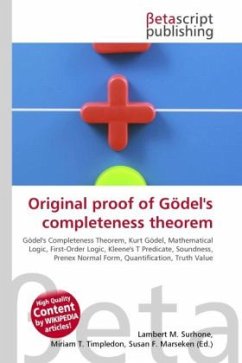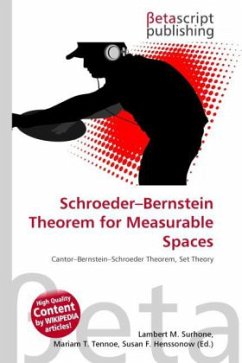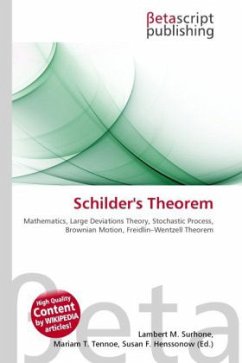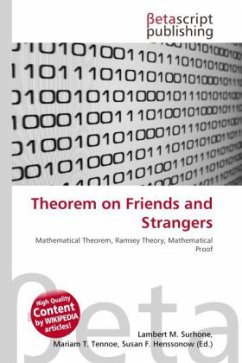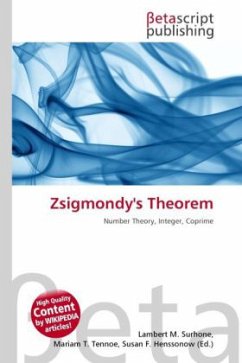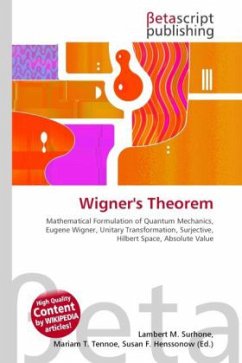
Wigner's Theorem
Versandkostenfrei!
Versandfertig in 6-10 Tagen
30,99 €
inkl. MwSt.

PAYBACK Punkte
15 °P sammeln!
High Quality Content by WIKIPEDIA articles! Wigner's theorem is a cornerstone of the mathematical formulation of quantum mechanics. It was proved by Eugene Wigner in 1931. The theorem specifies how physical symmetries such as rotations, translations, CPT, etc. act on the Hilbert space of states. According to the theorem any symmetry acts as a unitary or anti-unitary transformation in the Hilbert space.Eugene Paul "E. P." Wigner (Hungarian Wigner Jen Pál; November 17, 1902 January 1, 1995) was a Hungarian American physicist and mathematician. He received the Nobel Prize in Physics in 1963 "for...
High Quality Content by WIKIPEDIA articles! Wigner's theorem is a cornerstone of the mathematical formulation of quantum mechanics. It was proved by Eugene Wigner in 1931. The theorem specifies how physical symmetries such as rotations, translations, CPT, etc. act on the Hilbert space of states. According to the theorem any symmetry acts as a unitary or anti-unitary transformation in the Hilbert space.Eugene Paul "E. P." Wigner (Hungarian Wigner Jen Pál; November 17, 1902 January 1, 1995) was a Hungarian American physicist and mathematician. He received the Nobel Prize in Physics in 1963 "for his contributions to the theory of the atomic nucleus and the elementary particles, particularly through the discovery and application of fundamental symmetry principles". Some contemporaries referred to Wigner as the Silent Genius and some even considered him the intellectual equal to Albert Einstein, though without his prominence.




